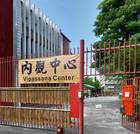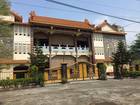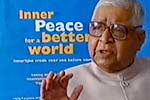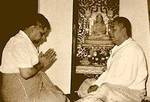WELCOME TO VIPASSANA TAIWAN













What is Vipassana Meditation?
Vipassana, which means to see things as they really are, is one of India's most ancient techniques of meditation. It was taught more than 2500 years ago as a universal remedy for universal ills, i.e., an Art of Living. For those who are not familiar with Vipassana Meditation, a list of Questions & Answers is available or watch the video below for a introduction by the principal teacher, Mr. Goenka.
What Vipassana is not:
- It is not a rite or ritual based on blind faith.
- It is neither an intellectual nor a philosophical entertainment.
- It is not a rest cure, a holiday, or an opportunity for socializing.
- It is not an escape from the trials and tribulations of everyday life.
What Vipassana is:
- It is a technique that will eradicate suffering.
- It is a method of mental purification which allows one to face life's tensions and problems in a calm, balanced way.
- It is an art of living that one can use to make positive contributions to society.
How to learn it?
The technique of Vipassana Meditation is taught at ten-day residential courses during which participants learn the basics of the method, and practice sufficiently to experience its beneficial results.
There are no charges for the courses, not even to cover the cost of food and accommodation. All expenses are met by donations from those who have completed a course, experienced the benefits of Vipassana, and wish to give others the opportunity to also benefit.
If you wish to take a course, read the Code of Discipline first, and then follow the instruction for registration, choose a centre and check the course schedule. No previous experience of meditation is required.
Where to learn it?
There are two Vipassana meditation centres in Taiwan: Dhammodaya in Xinshe District, Taichung City and Dhamma Vikasa in Liouguei District, Kaohsiung City. Courses are available throughout the year. Further information can be found on the pages of each centre; For information about courses at many other centres and temporary sites throughout the world, please visit International Vipassana Website.



